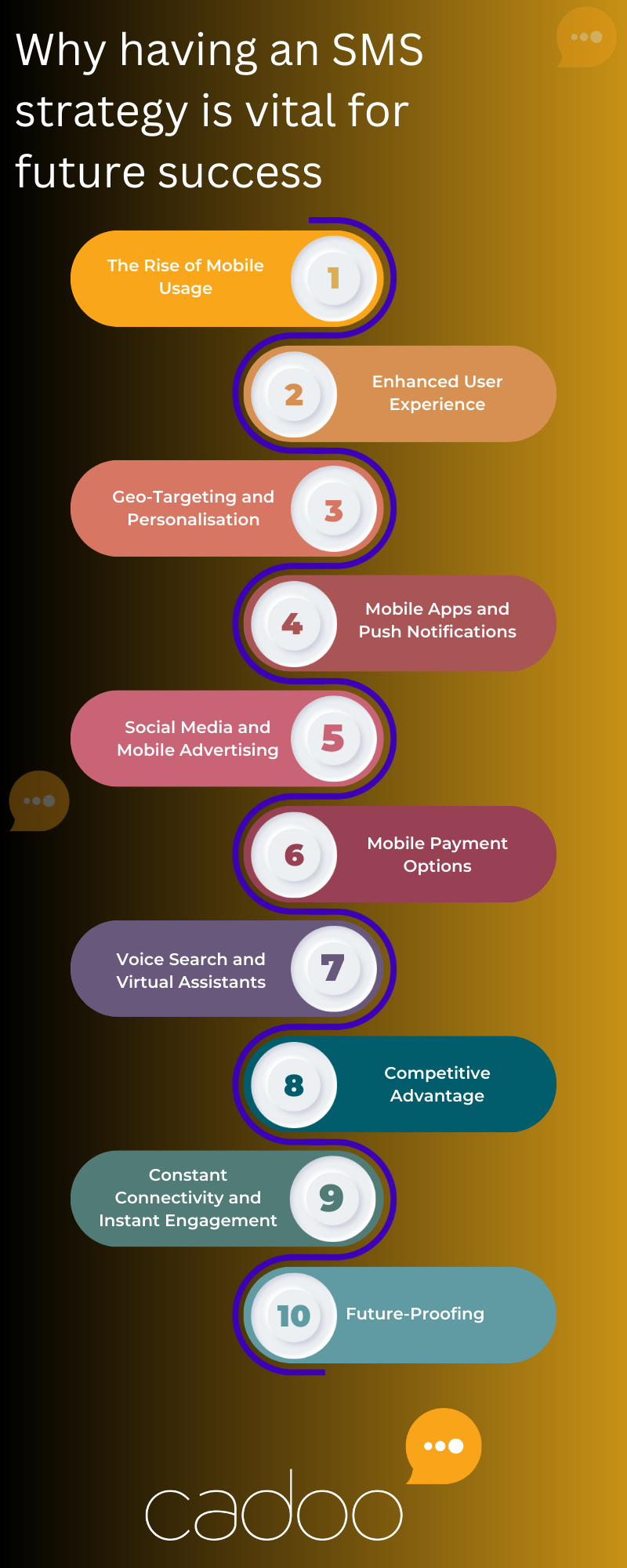In today’s digital age, mobile devices have become an integral part of our lives. From browsing the internet to shopping online, mobile phones and tablets have transformed the way we connect with the world and conduct business. As a result, businesses need to adapt and develop a strong mobile marketing strategy to stay competitive and thrive in the future. Let’s explore why a robust mobile marketing strategy is crucial for businesses of all sizes.
The Rise of Mobile Usage: Mobile devices have overtaken desktop computers as the primary means of accessing the internet. According to Statista, as of 2021, over 54% of web traffic worldwide came from mobile devices. This shift in consumer behavior means that businesses must optimize their marketing efforts for mobile platforms to reach a larger audience and stay relevant.
Enhanced User Experience: Mobile marketing allows businesses to provide a seamless and user-friendly experience to their customers. Mobile-optimized websites and applications ensure that users can easily navigate, access information, and make purchases on their mobile devices. By offering a smooth user experience, businesses can attract and retain customers, leading to increased engagement and sales.
Geo-Targeting and Personalization: Mobile devices provide businesses with valuable data about user behavior, location, and preferences. Leveraging this data, businesses can implement targeted marketing campaigns tailored to individual users’ needs and interests. By delivering personalized and relevant content, businesses can build stronger connections with their customers and improve conversion rates.
Mobile Apps and Push Notifications: Mobile applications offer businesses a direct channel to engage with customers. Companies can develop their apps to provide exclusive deals, loyalty programs, and personalized recommendations. Additionally, push notifications enable businesses to send timely updates, promotions, and reminders directly to users’ mobile devices, increasing brand visibility and customer engagement.
Social Media and Mobile Advertising: Social media platforms are predominantly accessed through mobile devices. By investing in mobile advertising on platforms like Facebook, Instagram, and Twitter, businesses can reach their target audience effectively. These platforms offer advanced targeting options based on demographics, interests, and behaviors, enabling businesses to maximize their advertising budgets and drive higher conversions.
Mobile Payment Options: Mobile marketing extends beyond promotional efforts. With the rise of mobile payment technologies such as digital wallets and mobile banking apps, businesses can offer convenient and secure payment options to their customers. Integrating mobile payment solutions not only improves the customer experience but also reduces friction in the purchasing process, leading to increased sales and customer satisfaction.
Voice Search and Virtual Assistants: The growing popularity of voice-activated virtual assistants like Siri, Google Assistant, and Alexa has transformed the way users search for information and make purchase decisions. Businesses need to optimize their content for voice search queries and consider incorporating voice-activated features into their mobile applications to capture this emerging market.
Competitive Advantage: A strong mobile marketing strategy can give businesses a competitive edge in the market. By embracing mobile technologies and delivering a superior mobile experience, businesses can differentiate themselves from their competitors. Consumers are more likely to engage with brands that offer seamless mobile interactions and are quick to abandon those that do not meet their expectations.
Constant Connectivity and Instant Engagement: Mobile devices have made people constantly connected to the digital world. Businesses can take advantage of this constant connectivity by implementing real-time engagement strategies such as mobile surveys, live chats, and interactive content. By actively engaging with customers through their mobile devices, businesses can gather valuable feedback, address concerns promptly, and build long-lasting relationships.
Future-Proofing: Investing in a strong mobile marketing strategy prepares businesses for the future. As technology continues to evolve, mobile devices will become even more prevalent, and consumer expectations will continue to rise. By establishing a solid foundation in mobile marketing now, businesses can adapt to future trends and remain agile in an ever-changing marketplace.
In conclusion, a robust mobile marketing strategy is no longer an option but a necessity for businesses aiming to thrive in the future. Mobile devices have become an integral part of consumers’ lives, presenting businesses with vast opportunities to reach and engage their target audience. By embracing mobile technologies, optimizing user experiences, and leveraging data-driven insights, businesses can stay ahead of the curve, increase brand visibility, drive customer engagement, and ultimately achieve long-term success.

Click here to speak to our SMS Experts!



